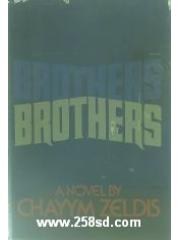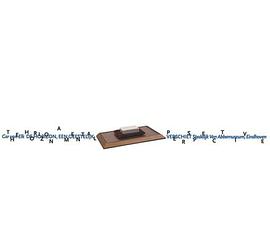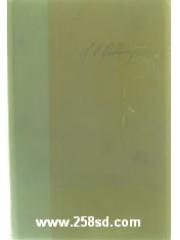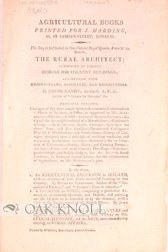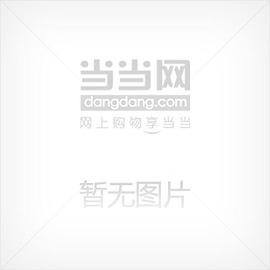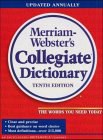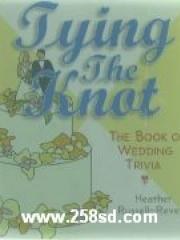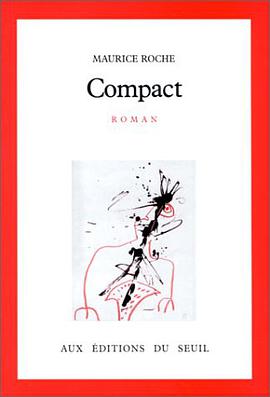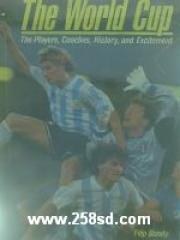

具体描述
AFTER TWO DECADES OF INFIGltTING AND CONSIDERABLE<br >procrastination, FIFA met again in 1924 at the Paris Olympics<br >to sketch out details for the first World Cup. In fact, the World Cup<br >tournament might never have evolved ff the Olympics had allowed<br >professional soccer players to compete. But since this was not to be,<br >FIFA recognized the need for a showcase soccer tournament that<br >would not penalize the European nations and their paraprofes-<br >sionals. The Olympic Committee has recently ruled that, begin-<br > ning in 1992, all players must be under twenty-three years old.) The<br > two Frenchmen who steered this tournament from conception to<br > the playing fields of Uruguay in 1930 were Henri Delauney, secre-<br > tary of FIFA, and president Jules Rimet, for whom the trophy<br > awarded to the winning team was later named.<br > By the 1928 Olympics in Amsterdam, FIFA was ready to award<br > the World Cup to a worthy host for 1930. Five nations put in their<br > bids: Holland, Italy, Spain, Sweden, and Uruguay. Uruguay, want-<br > ing to celebrate its 100th anniversary of independence with great<br > flourish, agreed to foot the travel and hotel bills of all visiting teams<br > and to build a new stadium expressly for the World Cup. This was<br > an offer Rimer and FIFA could not refuse; however, the other four<br > bidding countries were unhappy with the outcome and, as a result,<br > the four losing bidders boycotted the first World Cup, as did<br > England, Hungar}; German}; Switzerland, and Czechoslovakia.<br > From a historical perspective, it would be their loss.<br >THE FIRST WORLD CUP WAS A SLAPDASH THIRTEEN-NATION AFFAIR,<br >with last-minute entrants and a long, arduous boat journey across<br >the Atlantic for the four European squads that agreed to participate:<br >Belgium, France, Yugoslavia, and Romania. The Romanians were<br >an odd lot, selected from company teams and afforded month-long<br >vacations by no less than King Carol himself. (Most World Cup<br >players are picked by a national selection committee, usually<br >including the nation s coach, manager, and "technical directors.")<br > Without the presence of Italy, Austria, Holland, Spain, Sweden,<br >Czechoslovakia, England, or Holland, Uruguay became the heavy<br >favorite by default. After all, it had won gold medals at the 1924<br >and 1928 Olympics, and had some truly creative attackers from<br >midfield: forward Pedro Cea, and halfbacks Lorenzo Fernandez,<br >Jose Andrade, and Alvaro Gestido.<br > Among the thirteen teams that attended this inaugural event<br >was the United States, which fielded a side of foreign-born players<br >strong enough to dominate weak members Paraguay and Belgium.<br > Matches were not always top-flight, but usually competitive, and<br >Montevideo responded with unreined enthusiasm. Individual<br > players like rough-and-tumble center-half Luisito Monti and center-<br > forward Guillermo Stabile of Argentina, not well known outside of<br > their own countries, became two of the world s first international<br > sports stars.<br > Argentina, Uruguay s chief rival, seemed to court controversy<br > and chaos: With France trailing Argentina 1-0, and with Marcel<br > Langiller on a breakneck dribble toward the goal, Brazilian ref<br > Almeida Rego stopped the game with his whistle. Rego incorrectly<br > believed time had run out when there were still six minutes<br > remaining. The match resumed, but Langiller no longer had his<br > chance and Argentina held on. In the Argentinians next match<br > against Mexico, a Bolivian official called five penalty kicks. Their<br > final Group I match against Chile was interrupted by a lengthy<br > brawl caused by one of Monti s patented loose tackles.<br > Finally, after knocking off the United States 6-1, Argentina<br > earned passage into the first final against Uruguay. A crowd of<br > 90,000 poured into Centenary Stadium, many of them Argentinians<br > who had caught a boat across the Plate River on the eve of the<br > match. Uruguay won a coin toss, which allowed the team to use its<br >
作者简介
目录信息
读后感
评分
评分
评分
评分
用户评价
这本关于深海生态系统的科普读物,无疑是近年来非虚构写作中的一股清流。它摒弃了晦涩难懂的专业术语,转而采用了一种极其亲近、甚至带着一丝幽默感的叙事方式来介绍那些生活在光照带以下的可怕生物。作者似乎是一位天生的“深海导游”,他用一种充满激情的口吻描述了热液喷口周围那些完全依赖化学能生存的生物群落,那景象仿佛是地球生命演化出的一个完全独立的宇宙。书中对于“生物发光”的章节尤其精彩,作者详细解释了不同物种发光的频率、颜色及其背后的交流含义,让我意识到,深海远非一片死寂的黑暗,而是一个充满了复杂视觉语言的舞台。他特别花了篇幅介绍了一种深海蠕虫,这种生物在被捕获后,会以一种极其缓慢但坚决的方式“分解”掉自己携带的分析仪器,这种生命力的顽强和对抗人类科学的姿态,被作者写得既令人敬畏又带着一丝滑稽。语言上,这本书的句子结构短促有力,充满科普的精确性,但又穿插着大量基于人类情感的类比,使得即便是对生物学一窍不通的读者也能迅速抓住重点。这是一本让人对地球的未知领域产生由衷敬畏之情的佳作。
评分如果你在寻找一本能让你彻底沉浸其中的奇幻史诗,那么这本书绝对是你的不二之选。它构建的世界观宏大而又充满细节,远远超出了传统龙与魔法的套路。这个设定中,魔法并非源自血统或咒语,而是来源于对“记忆”的具象化和提炼。每个角色的能力都与其被遗忘或珍藏的记忆深度绑定,一旦记忆被窃取或扭曲,力量就会衰竭。作者对地理环境的描写简直是大师级的,那个被称为“静默之海”的地方,其气候、潮汐甚至光线的折射方式,都被描绘得如此真实,我甚至能想象出那种带着金属味的咸湿空气。情节推进上,它采用了多线叙事,但在关键节点上,不同支线人物的命运会以一种近乎宿命论的方式交汇,那种“啊,原来如此!”的顿悟感非常强烈。我特别喜欢主角团队中那个“记忆编织者”的角色,他既是修复者也是毁灭者,他的道德困境非常引人深思:为了更大的福祉,我们是否有权改写个体的痛苦记忆?这本书的语言风格充满了古老的咏叹调色彩,句子冗长但充满韵律感,读起来就像在聆听一首宏大的、由大提琴和低音提琴主导的交响乐,充满了史诗的厚重感和不可逆转的悲剧美学。
评分这本书简直是当代历史叙事的典范,它聚焦于冷战时期信息战的微妙层面,而非传统的军事对抗。我之前对那个时期的理解还停留在核威慑和间谍对峙的刻板印象中,但作者通过详实的档案挖掘和对多位退役情报人员的深度访谈,揭示了“认知战”是如何在文化、学术乃至流行音乐领域悄然展开的。叙事结构非常巧妙,采用了非线性的时间轴,将1960年代的太空竞赛与1980年代的文化输出策略穿插对比,形成了一种强烈的历史回响感。最让我印象深刻的是关于“影子图书馆”的部分,作者如何描绘了东西方阵营秘密资助和翻译对方禁书,试图通过文学作品来影响对方精英阶层的心理防线。他引述的一段内部备忘录——关于如何利用翻译作品中微妙的语气差异来强化某种意识形态偏见——简直令人不寒而栗,这比任何一次导弹试射都更让我感到威胁的真实性。语言风格偏向于严谨的学术报道,数据翔实,但作者偶尔会插入一些极富画面感的比喻,比如将信息战比作“在对方的思维土壤里播撒看不见的真菌”。这本书对于理解信息时代的权力结构具有极其重要的警示意义,让人在合上书本后,对收音机里播放的任何一则新闻都会多一份审慎的怀疑。
评分天呐,我刚刚读完了一本关于二十世纪初欧洲社会思潮变迁的巨著,简直让人醍醐灌顶!这本书深入剖析了从唯美主义向现代主义过渡时期知识分子内心的挣扎与觉醒。作者的笔触细腻得令人发指,尤其是在描述那些沙龙里的晦涩辩论时,仿佛我能闻到空气中弥漫的雪茄烟味和廉价香水味。他并没有简单地罗列哲学家和艺术家的名字,而是通过对几位虚构但极具代表性的“边缘人物”——一个失意的诗人、一位痴迷于科学与神秘学的贵族小姐、以及一位致力于记录城市底层生活的记者——的命运描摹,勾勒出了一个时代集体潜意识的转向。特别是那位贵族小姐,她对尼采和弗洛伊德理论的早期接触与误读,被刻画得如此真实可信,那种在理性与非理性边缘徘徊的迷醉感,让我几乎要放下书去查阅当时的心理学发展史。书中对“失落的一代”的形成有着独到的见解,认为那不仅仅是战争的结果,更是文化根基被怀疑后的必然产物。语言的运用上,时而古典典雅,引用大量的拉丁文和法文诗句,时而又突然变得冷峻、破碎,充满了意象的跳跃性,极具实验性。读完后我感觉自己的思维也被拉伸、重组了一番,迫不及待想找人讨论一下他对“时间感”的颠覆性解读。这本书绝不是轻松的读物,它要求读者投入巨大的心智能量去解码,但回报绝对是丰厚的。
评分我花了整个周末的时间才消化完这本关于后现代建筑理论与城市规划的论文集,它完全颠覆了我对“功能性”的理解。这本书的视角非常独特,它不是从美学角度评判建筑,而是探讨了空间本身如何塑造和限制人类的社会互动与权力关系。其中一篇关于“透明性与监视”的论述让我印象深刻,作者引用了福柯的理论,但将其应用于分析当代购物中心和机场的设计,指出那些看似开放、流动的空间,实际上是通过精确的视线引导和动线控制,实现了对个体行为的隐性规训。书中大量的图表和平面图分析极其详尽,它们不是简单的插图,而是论证的核心部分,我必须反复对照着去看,才能理解作者是如何通过一个楼梯的坡度和一块墙体的材质变化,来推导出一种特定的社会心理效应。语言风格极其学术化,充满了德语和法语的专业名词,句子结构复杂且逻辑缜密,要求读者必须保持高度的专注力。这本书更像是一套工具箱,它没有给出最终答案,而是提供了一套全新的、批判性的透镜,让我今后看到任何一座新的公共建筑时,都会不由自主地去审视其背后的社会意图。阅读过程是挑战,但其提供的洞察力价值无可估量。
评分 评分 评分 评分 评分相关图书
本站所有内容均为互联网搜索引擎提供的公开搜索信息,本站不存储任何数据与内容,任何内容与数据均与本站无关,如有需要请联系相关搜索引擎包括但不限于百度,google,bing,sogou 等
© 2026 book.wenda123.org All Rights Reserved. 图书目录大全 版权所有


